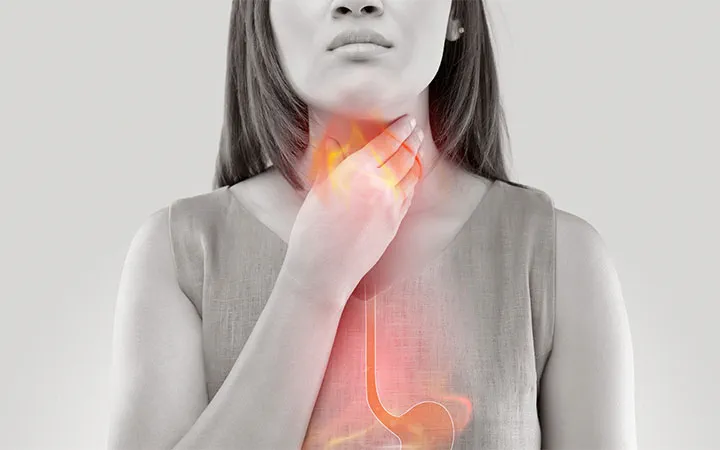Acid reflux occurs when the acid in the stomach frequently flows back into the esophagus. Acid reflux can cause hoarseness and sore throats and leave a bad taste in your mouth. But if you experience chronic symptoms that occur more than twice a week, you might be having a condition known as gastroesophageal reflux disease (GERD). Its main symptom is heartburn. Dallas acid reflux doctors provide you with an effective treatment that restores your quality of life so you can eat whatever you want without fear. Here is everything you need to know about acid reflux disease.
Causes of Acid Reflux
Acid reflux occurs when some acid from the stomach flows into the esophagus, where food passes from the mouth to the stomach. One of the most common causes is a stomach abnormality known as a hiatal hernia. It occurs when the lower esophageal sphincter (LES) and upper part of the stomach move above the diaphragm. The diaphragm usually helps in keeping acid in the stomach. But with a hiatal hernia, acid can move up to the esophagus and acid reflux symptoms become severe.
Diagnosis of Acid Reflux
If you have acid reflux symptoms that occur two or more times a week and if your medications aren’t working, see a doctor immediately. Some symptoms like heartburn are one step in diagnosing acid reflux disease, especially if anti-acid blocking medications and antacids help reduce the symptoms.
If you have recurring or severe symptoms, your doctor can order other tests to confirm your diagnosis. You may need the following test:
Endoscopy. Your doctor inserts a thin tube containing cameras and lights down your throat to examine the inside of your stomach and esophagus. Endoscopy can detect inflammation in the esophagus and other complications.
Esophageal manometry. This test checks the movement of the muscles in the esophagus when you swallow.
How Is Acid Reflux Treated?
In most cases, changing your lifestyle followed by medications can help control the symptoms of acid reflux disease. Antacids like Rolaids, Maalox, and Alka-Seltzer, can help neutralize the acid in the stomach, but they can cause constipation if you overuse them. To counteract these side effects, you should use antacids containing aluminum hydroxide and magnesium hydroxide.
If medications don’t work, your doctor can recommend surgery. There are two main types of surgical treatment used to reduce symptoms of GERD if medications are not effective. The first procedure involves placing a ring called a LINX device around the lower end of the esophagus. This device helps prevent acid from the stomach from going back to the esophagus.
The other surgical procedure is known as fundoplication. This procedure involves creating an artificial valve using the top of your stomach to wrap the upper part of the stomach around the LES to prevent acid reflux and fix the hiatal hernia.
Acid reflux disease can put you in uncomfortable situations, especially if you are experiencing heartburn as a symptom. You should always seek treatment before the symptoms become severe. At Michael Sutker, MD, PA, we offer effective treatments that help do away with recurring acid reflux symptoms. You can contact us and book an appointment online today.







